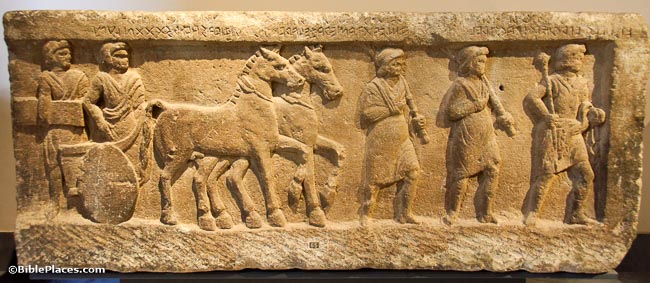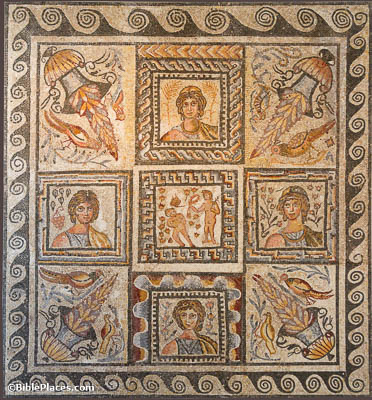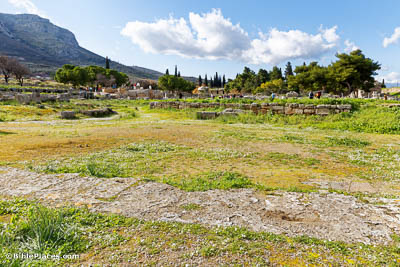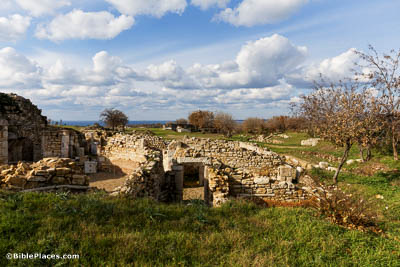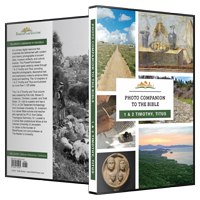I solemnly charge you in the presence of God and Jesus Christ, who will judge the living and the dead (2 Timothy 4:1).
Many of the issues that required legal judgment in the Roman system were handled by magistrates. This relief shows a magistrate in his chariot followed by a scribe. In front of the chariot are his two lieutenants (lictors), carrying fasces (a bundle of rods with a projecting ax blade, carried as a symbol of a magistrate’s power). This sarcophagus was photographed at the Vatican Museums.
